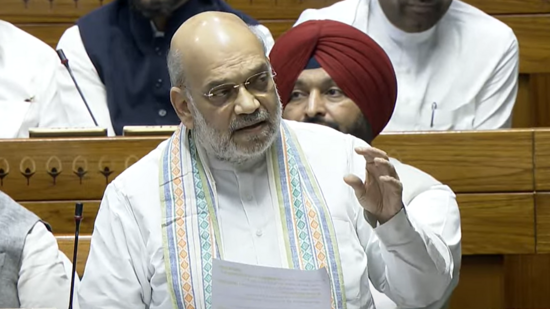Introduction: The Waqf Amendment Bill and its Context
The recent discussions surrounding the Waqf Amendment Bill have sparked considerable debate across the nation. Union Home Minister Amit Shah’s remarks, particularly his clarification that “no non-Muslim will be part of Waqf; understand this clearly,” have brought the core issue into sharp focus. The Waqf Amendment Bill aims to streamline the administration of Waqf properties, which are religious endowments under Islamic law. Understanding the nuances of this bill is crucial for appreciating its implications.

Understanding Waqf Properties: A Brief Overview
Waqf properties are dedicated to charitable or religious purposes under Islamic law. These properties play a vital role in supporting various community initiatives, including educational institutions, religious centers, and welfare programs. The effective management of these properties is essential to ensure they serve their intended purposes. The current amendment seeks to address existing challenges in the administration and protection of these assets.
Amit Shah’s Clarification: Addressing Concerns and Misconceptions
Amit Shah’s statement regarding the exclusion of non-Muslims from Waqf management is a direct response to concerns about potential interference in religious affairs. This clarification emphasizes the bill’s intent to maintain the integrity of Islamic religious endowments. By explicitly stating this, the government aims to dispel any apprehensions about the bill’s impact on the religious autonomy of the Muslim community. This point is crucial as it addresses one of the most sensitive aspects of the debate.
The Bill’s Objectives: Streamlining Administration and Preventing Encroachments
The primary objectives of the Waqf Amendment Bill include:
- Improved Governance: The bill seeks to enhance the transparency and efficiency of Waqf boards, ensuring better management of properties.
- Protection Against Encroachments: A significant focus is on preventing illegal encroachments and ensuring the rightful use of Waqf lands.
- Modernization of Records: The bill aims to modernize the record-keeping of Waqf properties, facilitating easier management and accountability.
These objectives are intended to safeguard the interests of the Muslim community and ensure that Waqf properties continue to serve their intended purposes effectively.
The Debate and Diverse Perspectives: A Nation’s Conversation
The Waqf Amendment Bill has triggered a range of perspectives. Some view it as a necessary step towards reforming and streamlining the administration of Waqf properties. Others express concerns about potential implications for religious autonomy. The nationwide conversation surrounding this bill underscores the importance of transparent and inclusive discussions on matters of religious significance.
Looking Ahead: The Path to Effective Implementation
The effective implementation of the Waqf Amendment Bill will require careful consideration of all stakeholders’ concerns. Dialogue and collaboration between the government and the Muslim community are essential to ensure the bill achieves its intended objectives while respecting religious sensitivities. The focus should be on creating a framework that promotes transparency, accountability, and the preservation of Waqf properties for future generations.
Conclusion: Balancing Reform and Religious Sensitivity
The Waqf Amendment Bill is a significant legislative initiative with the potential to reshape the administration of Waqf properties in India. Amit Shah’s clarification regarding the exclusion of non-Muslims from Waqf management highlights the government’s commitment to addressing concerns about religious autonomy. As the bill progresses, it is crucial to maintain a balanced approach that promotes reform while respecting the religious sensitivities of the Muslim community.Sources and related content
